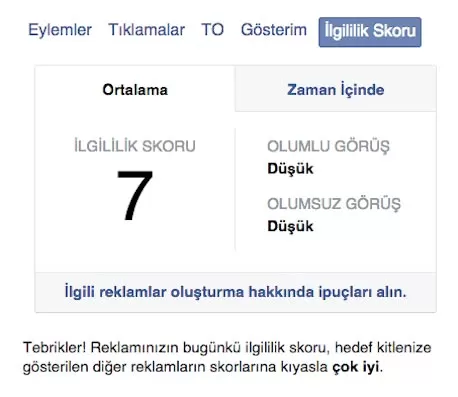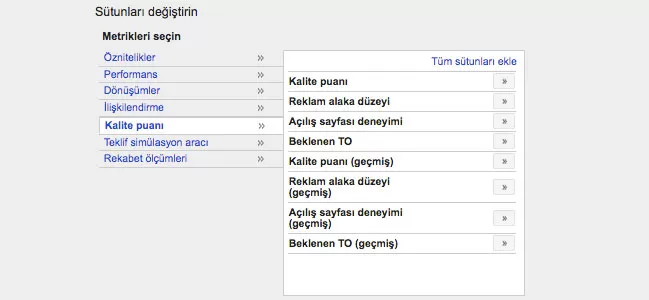Ad Relevance refers to how well the content of the advertiser’s campaign matches the user’s search queries. Google helps you determine relevance using a multifaceted approach by analyzing how well the various content you offer (on your landing page, with ad copy and targeted keywords) aligns with user searches.
The important thing when doing this work is that the keywords you set for Google AdWords and pay for advertising are compatible with user searches and offer you potential customers. Including the keywords you have identified in your blog posts, using them on your landing pages, etc. methods would be appropriate for this situation.
For example, if your target audience searches for “Eastern Black Sea Tour” and your website primarily discusses package tours in the Eastern Black Sea region with very few words related to outdoor vacations, this indicates a low relevance.
If your website, landing page, blog posts and ads provide useful information about “Great places to see in and around the Eastern Black Sea region”, you have an above average Ad Relevance score.
The three different "Statuses" are:

Your targeted keywords or search term may be too broad-based or not clear. For example, if you are offering “extraordinary” adventure trips in tents or temporary camps at Yedideğirmenler Nature Park, the terms “Karadeniz Gezisi” or “Doğu Karadeniz Seyahati” might be too broad.
Try creating a more targeted, tightly themed ad group and choose from a smaller set of keywords to make your ads more closely match your service offering.
High Quality Score and its Relationship with Ad Relevance
For example, you might receive a high Quality Score for the keyword ‘Yedideğirmenler Tabiat Parkı’ because it is a unique search term. However, for keywords like ‘luxury tent accommodation’ or ‘scenic camping,’ you might not attract enough keyword visitors. To improve overall performance, you need to look closely at individual factors and better evaluate the context by thinking about it in context.

Conclusion
Ad Relevance is a concept that Google uses to ensure that both visitors and advertisers are meeting in the right context, i.e. looking at the semantic proximity of the search term, taking into account not only its exact similarities but also its contextual relevance.
As an advertiser, evaluating your content and keywords by considering all these issues will help you use your resources more effectively.

